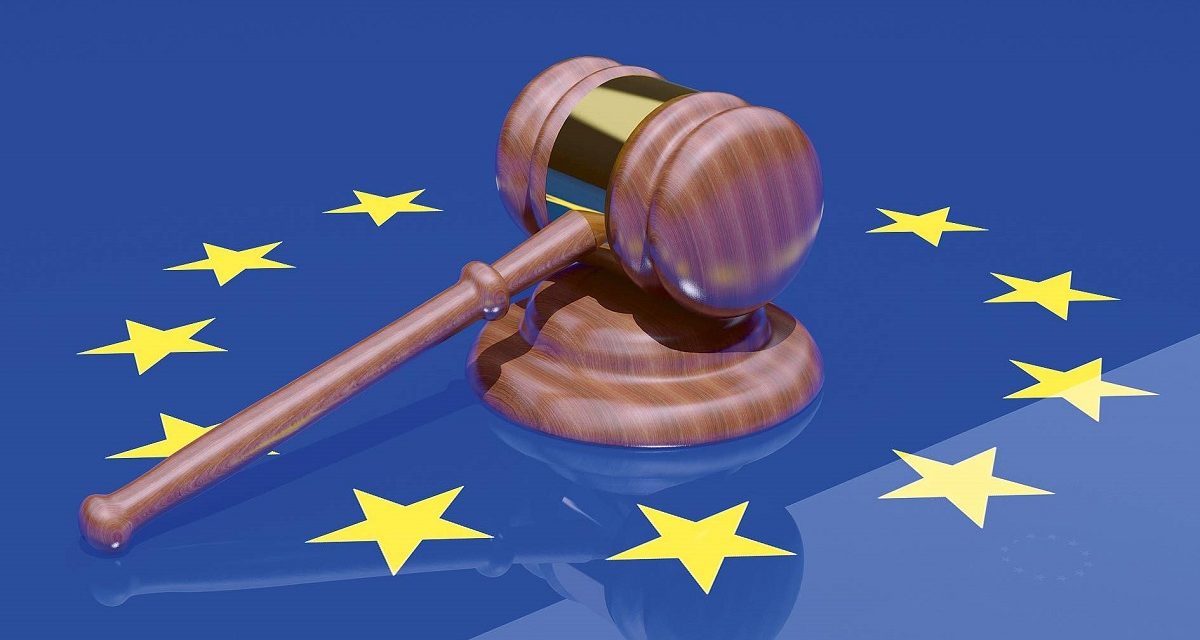Brussels' latest draft would further worsen the situation of EU citizens, as well as open interference in the lives of individuals and unprecedented restrictions on national sovereignty at the EU level. After imposing counterproductive sanctions, the European Commission would now go against the founding treaties, which define subsidiarity as a basic principle, as well as the order of EU legislation - these would be ignored by Brussels.
Since the outbreak of the Russian-Ukrainian war in February 2022, the European Union has adopted six sanctions packages against Russia, several of which (the second [February 25, 2022), the fourth (March 15, 2022), the fifth (March 2022 April 8) and the sixth (June 3, 2022) also covered the energy sector. Russia has violated international law, which has prohibited the initiation of war since the Briand-Kellogg Pact of 1928, abolishing ius ad bellum and not recognizing casus belli Like all European countries, our country also condemns armed aggression. With all of this, however, shortly after the measures taken against the Russians, it had to be realized that the Brussels sanctions policy was wrong, since economic decisions were made on a purely ideological basis, the result of which - together with the armed conflict - was the energy crisis and wartime inflation that hit the continent. On March 7, 1 euro was worth 1.09 US dollars, today it is only 1.02. In contrast, 1 Russian ruble was worth 0.0072 US dollars on March 7, but today it is 0.018. With the sanctions against Russia, Brussels was actually punishing its own member states, where covering utility costs sometimes endangers people's livelihoods:
- In Latvia, the price of domestic natural gas rose five and a half times in one year,
- In Belgium, the electricity and gas bill is currently almost HUF 180,000 higher than a year ago,
- according to current forecasts, in almost half of British households, people's salaries are not enough to settle their electricity and gas bills,
- the annual energy consumption of an average Dutch household is more than one million forints.
With official prices, Hungary protects the population from intensively rising utility prices and moderates inflation. Thanks to this, the population had to pay only 2.75 eurocents for one kWh of natural gas in Budapest in May, while it was 21.92 eurocents in Copenhagen, 22.89 in Stockholm, and 26.85 eurocents in Amsterdam.
Price caps are not only a means of economic protection in the hands of the government, but also play a role in protecting fundamental rights and strengthening sovereignty, since the free disposal of income from work (which is not possible if people spend a significant proportion of their salary on subsistence) is protected by fundamental rights, and thanks to fixed prices, citizens retain the sovereign right to decide what they spend their money on, and do not have to spend a significant portion of their income on quasi-obligatory expenses, such as utilities.
While the national, civilian government does everything to protect fundamental rights and individual and national sovereignty, the European Commission (EC), which attacks Hungary with baseless accusations of the rule of law, has come up with a plan that disregards EU law, which violates fundamental rights, as well as it violates both individual and national sovereignty.
The EC would give itself the authority to have a say in the gas consumption of the EU member states with a binding argument. Thus, if Brussels were to suffer from a significant lack of gas reserves in the next period (the saturation of European gas storages was 58 percent on June 30, which is 2 percent below the average of the last five years), it could oblige the member countries to reduce their gas consumption.
The EC has also created a legal procedure by which the member states can accept this plan with a simple majority instead of unanimity, bypassing both the European Parliament (EP) and the veto of individual EU members.
Brussels' modus operandi is characterized by the double standard with which it measures itself and governments that promote the ideology of open societies, as well as conservatively led countries that reject extremist ideologies.
When the Hungarian Parliament adopted Act XII of 2020 on protection against the coronavirus. law, the entire left – both politicians and the neoliberal media – targeted the legislation enabling effective defense against the pandemic, calling it “Empowering Laws”, referring to the actual Enabling Law enacted by the NSDAP in the Third Reich. Of course, the left-liberal media do not raise concerns about the rule of law regarding the current Brussels idea, nor do they mention an authorization law, even though the draft clearly goes against EU law. Pursuant to the founding treaties, the European Court of Justice has powers to initiate and monitor legislation in the dimension of the EU institutional system. The current draft, in connection with which a legal mechanism was also created, would give the EC a binding say in relation to a member state's gas consumption, thereby bypassing both the EP and individual member state vetoes. This plan of the EC clearly upsets the "normal" institutional order and removes the function of the EP and the European Council (EC), since the EC can only act in the area of initiating legislation, as the actual legislation is one of the powers of the EP and the EC.
The EC's plan conflicts not only with EU law, but also with constitutional law: it violates the sovereignty of European citizens and the EU nation-states, and has a restrictive effect on fundamental rights.
In the council, unanimity is essential for "sensitive subject areas", but in this case, the EC's draft would void this, thus indirectly national sovereignty and member states' powers would be weakened - vis-à-vis the EU institutions.
The fact that Brussels would directly regulate the gas consumption of the member states seriously violates the sovereignty of individual countries, on the one hand, and is also incompatible with the principle of subsidiarity, since each state concludes its own gas contract, and the population also considers which party represents which energy policy during elections. However, no one elects the members of the EC, which means that they do not have popular legitimacy either.
full analysis of Századvég .
Source: hirado.hu












